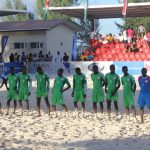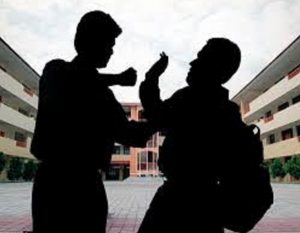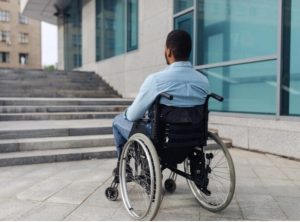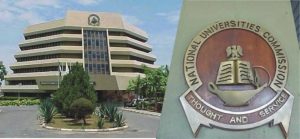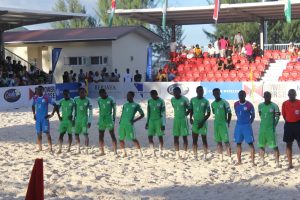
Illustration: RayCoker
The growth of any nation is hinged on the quality of education with which the people are fed. In recent times, Nigerians have decried the steady slide in the education sector; employers of labour have at different fora expressed their displeasure over the un-employability of Nigerian graduates because most of them lack the requisite skills to perform in today’s job market owing to the poor standards of education at the various levels.
Education as a conscious and deliberate effort should create an atmosphere of a learning process learners are actively developing their potential, intelligence, noble character, and necessary skills needed by them and to benefit the larger society. In this case, there should be a benchmark for determining how to do things the right way, which constitutes the standards.
In education, standard requires agreement on rubrics (system for instruction), criteria, and other systems of coding learning outcomes or academic achievements.
Academic standards are the benchmarks for quality and excellence in education such as the curricula designed and the difficulty level of examinations. Educational standards define the knowledge and skills students should possess at critical points in their educational careers. The learning outcomes define who is properly educated by the depth of knowledge and connectedness to the world beyond the classroom.
Nigeria with a population of over 200 million, has over 116,000 private and public primary schools and 30,000 private and public Secondary Schools (Statista 2018/19 report). There are also over 201 Private and public Universities. Beyond these numbers are lots of indicators that call for attention to rescue the system from its eventual collapse.
The year 2022 witnessed one of the longest Academic Staff Union of Universities (ASUU) strikes in Nigeria, thus students were at home for almost one session before it was suspended. This is why the issue of dwindling standards is mind-burgling and should be addressed.
Studies and other empirical evidence have shown that the standards in education are actually falling in Nigeria at all levels and because of this; Nigerian Universities’ ranking among other universities in the world is abysmally low. None of them is in the top 1000 in the Webometric universities ranking of July edition, 2022, whereas, eight South African Universities ranked in the top 1000 on the same ranking platform while Nigeria’s best is ranked 21 in Africa.
Last year, the country’s universities lost almost an academic session which was the fallout of disagreement between lecturers and the government over the failure of the latter to honour earlier signed agreements. There is no sign in sight that this Sisyphus circle of strikes will be broken unless something drastic is done. When the environment is not conducive for research, training, poor remuneration, and more, the result is imaginable.
Graduate students who have not received adequate tutorials and practice should not be expected to perform properly. The result is incompetence; lack of proficiency and massive failure of students in external examinations culminating in un-employability in the job market and a deficit in national development.
Poor Funding:
The government has its fair share of blame which can be traced to poor funding of education; for instance, UNESCO recommended that funding for education should not be less than 26% of the total budget of a country, but we are yet to match that. In 2017, budget proposal on education presented by President Muhammadu Buhari was N448.01 billion, representing just 6% of N7.30 trillion budgeted for the country. 2023 budgetary allocation of N2.05 trillion to education is the highest t ever made to education since President Muhammadu Buhari assumed office in 2015. This represents 10%, which is less than half of what is recommended by the global agency, UNESCO.
Poor funding of education in Nigeria leaves the school with inadequate teaching staff, ill-equipped laboratories; inadequate lecture theatres; overcrowded hostels; poor libraries and a lack of well trained personnel. It is a common sight to see students stand through hours of lectures in all Federal and State Universities. The staff are poorly remunerated; the students’ welfare is given little attention; and the tuition fees are exorbitant.
Student-Faculty Ratio
The sudden emergence of many Universities in the country has led to a gaping personnel crisis.
The National Universities Commission revealed that only 100,000 academic staff members are attending to 2.1 million students in Nigerian universities which is 21:1 Student to lecturers ratio, whereas it is 5:1 at Harvard University, highlighting the parlous state of university education in the country. A low student-faculty ratio allows professors to dedicate more time to students. With smaller classes, lecturers can easily manage their students, having more time to engage with each student to address possible areas of improvement in research and projects.
These negativities have resulted in the disruptions of academic calendars and unnecessary extensions of academic programmes. Frequent strikes by Lecturers and at other times by non-academic staff or the students themselves take its toll on learning outcomes.
Within 24 years, 16 ASUU strikes were experienced; the last one which was called off on October 14, 2022 lasted for eight consecutive months.
Strikes by the Academic Staff Union of Universities and the failure of the government at finding lasting solutions to these protracted crises have continued to destroy the university system in Nigeria.
Out of School Children
The issue of enrolment is a critical factor. UNESCO, using a new and improved methodology in 2022, arrived at the latest figure of 244 million children and youth between the ages of 6 and 18 worldwide (who) are still out of school”, with Nigeria having 20 million out-of-school children. The data also indicate that Nigeria accounts for more than one in five out-of-school children anywhere in the world. If care is not taken, these out-of-school kids will continue to constitute a real problem for the country
Corruption
In Nigeria, almost all the Ministries, Departments and Agencies (MDAs) are fraught with corruption; and the education sector is no exception. There are stories of lecturers collecting bribes from students in exchange for good grades, university administrators demand for money from students to have exam results compromised.
Examination malpractice and academic fraud have assumed an alarming proportion in our educational institutions. From primary school to secondary and tertiary levels of education, the story is the same. The monsters, which examination malpractice or academic fraud comes with are certificate forgery, mercenary hiring to sit for examinations, sale and purchase of examination marks or grades, cheating during examinations and others.
Investigations also revealed that some examination centres exist in this nation where parents, in collaboration with some schools, compromise external examinations like WAEC, NECO, and UTME
“It is common sight to see students stand through hours of lectures in all Federal and State Universities. The staff are poorly remunerated; the students’ welfare is given little attention; and the tuition fees are exorbitant. These negativities have resulted in the disruptions of academic calendars and unnecessary extension of academic programmes”
Poor Basic Education
The new UNESCO data shows that 20.2 million children and youth between the ages of 6 and 18 in Nigeria are still out of school. UNESCO, calls for collective mobilization to ensure that the right of every child to access quality education is respected. Basic primary education is the foundation for education at other levels in the sector. When the foundation is right; secondary and tertiary levels will just be standing firm.
Random visits to public primary schools in Lagos, Delta, Kebbi, and Kano states reveal a lot of rot. Some public primary schools across the country are replete with dilapidated buildings, inadequately qualified teaching staff, inadequate classrooms, no library, lack of sporting facilities, lack of sick bay or anything to expose pupils to a simple use of computer and teaching aids that will make for simple, effective teaching and learning process.
In most cases, the few staff in the schools do not have the requisite training, knowledge, and skills for classroom management and curriculum delivery. Such pedagogical failing is one of the reasons for pupils’ poor achievement. No wonder some students on admission into Junior Secondary schools cannot take simple English language dictation of words not to talk of reading a comprehension passage.
This was corroborated on 24 January 2023 by Cristian Munduate, UNICEF Nigeria representative, in a statement to mark the 2023 International Day of Education when she said, ‘’75% of children aged 7 to 14 years in Nigeria cannot read simple sentences or solve basic mathematics. Worse still, public primary schools are overpopulated thus class management becomes a real nightmare.
Politicizing Education
The indiscriminate establishment of universities by the federal and state governments for political expediency; the establishment of private universities by politicians, and businessmen, have resulted in the mushrooming of higher institutions.
With 201 universities, 48 of which belong to the Federal Government; 54 owned by State Governments; and 99 by private individuals and organisations, the 100,000 academic faculty members are grossly inadequate to provide qualitative education to the undergraduate and postgraduate populations.
However, a school of thought still feels that the number of tertiary schools is inadequate for a country with a population of over 200 million; for this reason, more Universities are being processed for approval to make political gains when the existing ones are begging for attention.
| Private Universities | 99 |
| State Government Owned Universities | 54 |
| Federal Universities | 48 |
It is also sad to observe that there is too much political and religious interference in the running of public secondary schools. This tells so much about the morale of the teachers and the tone of the schools.
Administration and Quality Assurance
A situation where quacks and underqualified hands are engaged as teachers is unacceptable and by implication; those charged with the responsibility of monitoring are not doing their job. Quality Assurance Unit is critical in ensuring that standards are not allowed slide.
In 2022, the Governor of Kaduna State of Nigeria, Mallam Nasir El Rufai once observed that some teachers of secondary schools in the state were employed with primary six leaving certificates; this led to his having to organize competency tests for the teachers. The result was that 2,357 teachers were found wanting and were eventually sacked.
Also, there is a lack of commitment to the profession by some of those teaching in schools, because teaching is considered a profession of the last resort when all else cannot be achieved.
Some lecturers in some tertiary institutions are not productive because of other side engagements to complement their earnings. These shortcomings by teachers reflect conspicuously on the quality of graduates they produced.
Policy-Somersault
There is frequent policy somersault recorded in the sector. For example, the jettisoning of the 6-3-3-4 system adopted in the mid-80s to equip youths with the right skills and trade has resulted in the abandonment of equipment installed in schools for the teaching and learning of introductory technology. In the same vein, books and other facilities bought for the initiative have since been abandoned. Besides policy inconsistency, stakeholders equally point to the frequent changes in the leadership of the education ministry. Between 1999 and 2008, the ministry was led by more than six persons and the undercurrent is predictable: inconsistency in policy statements.
It is imperative to note that since various public schools were taken over from the missionaries by the military in 1976, the public school system had never remained the same. By the time the Government was ready to return the schools to the original owners, the economy had gone so bad that the owners could not afford to take them back.
Unstable Curriculum and Update Textbooks
An effective curriculum provides teachers, students, and administrators with a measurable plan and structure for delivering quality education. It acts as a roadmap for teachers and students to follow. The lack of a virile and stable curriculum informs why some schools opted for the British curriculum.
At different levels of the sector; textbooks are scarce or outrageously expensive. This gives room for lecturers to sell lecture notes as handouts instead of writing proper textbooks.
It is global practice for educational curriculum content to be reviewed every five years. This is to ensure that the curriculum is relevant and addresses current issues in society. For this reason, The Nigerian Educational Research and Development Council (NERDC), the agency of the Federal Government charged with the responsibility of implementing educational policies in Nigeria needs to wake to its responsibilities so that textbooks are well structured; constantly reviewed to specifically ensure that the gaps emerging by the paradigm shift in science, technology and other emerging social issues are reflected and old knowledge discarded. Knowledge should not be static.
It is sad that while other countries are preparing their elementary schools for coding, Nigerian pupils are yet to know what a computer mouse is.
Poor Parenting and Guidance
Parents are meant to provide the basic needs to meet the challenges of life, but many parents do not even show enough care or support. All they want is for their wards to pass examinations, irrespective of the means. Some parents with influence use their connections to effect the redeployment of teachers or head of schools who does not dance to their tunes.
Teachers’ Welfare
There is no meaningful welfare package for teachers. Teachers are poorly paid and seen as the flotsam and jetsam in society. In addition to the poor salary, they are always the last to be considered for any increment or enhanced bonuses.
Once the teachers go on strike, the students are asked to go home which often results in extended course duration. No sooner than the strikes are called off and students are rushed to cover course contents within a short time and simultaneously asked to sit for examinations. Thus students are made to spend five to six years in a four year programme.
The situation is very bad, but to prevent its further deepening, the government and stakeholders need to declare an emergency in the education sector and bring about strategic reform education sector and follow it through with funding and the law.
There should be a recruitment of qualified hands to replace aging hands at all levels.
The existing Teachers and Lecturers in the system must be exposed to modern techniques and technologies to enhance their work and competence. Regular re-training sessions need to be done
The government should make more scholarship opportunities available for indigent but brilliant students. A situation where foreign institutions give more scholarships to Nigerian students should be reversed.
Saving the educational sector should be a priority for the federal and state governments. When that is done, the dreams and aspirations of Nigerians in the coming generations will be attained.






